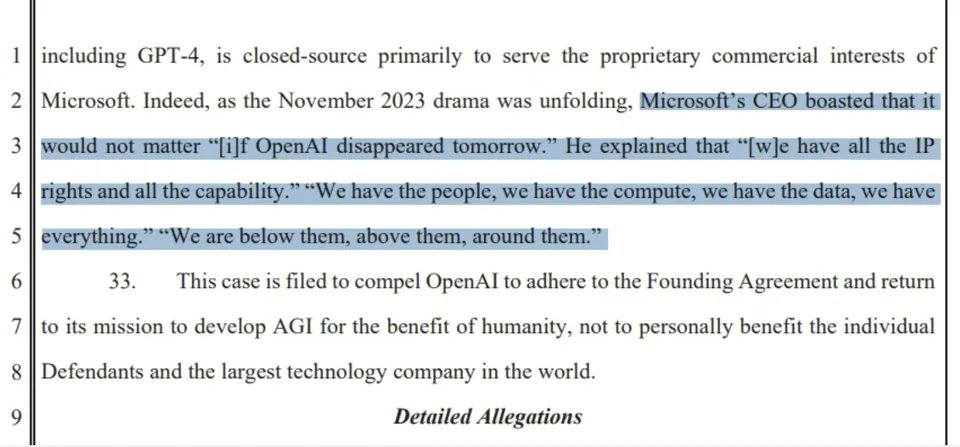| The Trade Off: Privacy v. Low Quality Ads |
 |
If you’re an iOS user, you may have noticed that the pre-roll ads you see on YouTube are of the lowest possible quality. These low-quality ads directly result from users Safari browsers blocking all third-party cookies. The programmatic ecosystem doesn’t know anything about them, which means few marketers want to spend their budgets on an unknown user. As a result, the users see irrelevant, low-quality ads selling dubious products. This is the tradeoff we all face: privacy vs. low-quality ads. I watched videos in Chrome for a long time because the ads weren’t as painful, but now that they are deprecating cookies in that browser, I should probably expect poor ad experiences there as well. Amazon Can Uniquely Offer Data, Targeting, and Measurement Post Cookie For this reason, Digiday's Seb Joseph believes that Amazon will be an unexpected beneficiary of Chrome's cookie deprecation. He writes, "Once those cookies disappear, Amazon will stand as one of the few and largest platforms where marketers can precisely target and measure their advertising." Targeting is only half the problem. In some instances, measurement is the bigger concern, and as it happens, Amazon has some great stories to tell. For example, its DSP-modeled conversion tools provide advertisers with a comprehensive view of campaign results, including conversions from non-addressable audiences or instances where the link between an ad interaction and a conversion event is unavailable. To help with tracking, there's talk of Amazon rolling out a new identifier with the catchy name, project ID++. It's unclear what this will do, but the job description noted, "The ID++ Program supports the next generation of innovative products and services that will fuel the future growth of Amazon's ad solutions in an identity-restricted world." That identifier can add tremendous strength to its off-site ad business and provide another reason for marketers to pour even more money into Amazon Advertising. But despite these advantages, there's no guarantee that Amazon is poised to topple Google or Meta and dominate advertising in the post-cookie world. True, the company reaps benefits from cookie deprecation, thanks to its logged-in user base and possible user ID, but it's still a competitive market. Besides, the FTC is already investigating Amazon's monopolistic behavior in advertising, especially in sponsored ads. The bottom line: We see many solutions allowing advertisers to target specific audiences and measure their response, but we shouldn't expect a panacea from Amazon or anyone else. In the meantime, get used to seeing belly fat ads. – SS |
| French Regulator Fines Google $271 Million for Bad Faith Negotiation |
| Publishers worldwide want to be compensated by AI companies that train their models on their content, and the regulators have their backs. At a Senate hearing in January, lawmakers on both sides of the aisle agreed that AI giants should pay up. Across the pond, regulators are taking it one step further. In France, regulators hit Google with a $271 million fine for training Bard (now Gemini) on local publisher content without notifying them first and generally “failing to respect commitments made in 2022.” The French regulator also accused Google of negotiating in bad faith, which Google chose not to contest. This action is particularly important to publishers facing a loss of traffic from search results to their sites. Many are predicting an “extinction-level event” in the publishing business as a direct result of the catastrophic drop in referral traffic. Take The Atlantic, which estimates that 40% of its traffic comes from Google searches. These licensing agreements may prove vital to publishers suffering a 40% to 50% drop in referral traffic, and staving off a publishing apocalypse may be why the French regulator is keen to ensure the AI giants act in good faith. – SS |
|
| Disney Partners With Programmatic Giants for Enhanced Hulu and Disney+ Ads |
| The Walt Disney Co. is partnering with major programmatic sellers to expand advertising opportunities for Hulu and Disney+. Through agreements with Google's Display & Video 360 and The Trade Desk, Disney wants to make streaming ad inventory more accessible to a broader range of marketers, including national, regional, and local advertisers. "Disney's goal is to empower advertisers to transact with the freedom and flexibility that best suits their business needs," said Jamie Power, senior vice president of addressable sales at Disney Advertising. "Owning our own technology stack allows us to build a direct path between our premium inventory and the leading media buying platforms in the industry, simplifying the way ads are bought and sold on Disney while delivering greater effectiveness for our clients." DRAX Direct, an expansion of the Disney Real-Time Ad Exchange created in March 2021, establishes a direct path to advertiser demand through partnerships with Google and The Trade Desk. This integration offers advertisers greater automation and unified access to streaming inventory across Hulu and Disney+. Industry experts say the CTV space is fragmented, so efforts to streamline the ad-selling process are essential. Oscar Rondon, SVP of Product and Partnerships MiQ, said advertisers must create direct relationships with publishers. Rondon added, "Programmatic is merely a transaction mechanism, offering a range of deal types that can be customized to suit the desired relationship with publishers. Direct relationships with publishers remain essential, and upfront and scatter marketplaces persist, offering different buying modes to align with diverse inventory types and desired outcomes." – AB |
| NBCUniversal's Gen AI Ads Targets Consumers Emotions and Motivations |
| NBCUniversal unveiled at its annual tech conference One24, its use of generative AI-driven ads to revolutionize advertising strategies. By harnessing gen AI, NBCU analyzes vast amounts of TV and social content across its portfolio to decipher audience emotions and motivations. It enables advertisers to target individuals likely to purchase certain products based on their engagement with specific themes and storylines. Much like Reset Digital’s Neuroprogrammatic marketplace which matches “the emotional content of the ad to the content with which the consumer is engaging, and thereby the emotions of the consumer.” NBCU has developed 300 audience segments using this method, allowing marketers to target viewers down to the episode level of shows such as "Law & Order" and "Dateline." For instance, viewers engaging with themes of sibling rivalry may be linked to family values and a preference for a particular fast-food chain, as illustrated by NBCU's Chief Data Officer, John Lee. In trials with ten undisclosed advertisers, NBCU's Gen AI-driven ads exhibited a performance boost of 21% to 49% compared to traditional targeting methods based solely on show titles and genres. According to Lee, this enhancement stems from AI's ability to uncover non-intuitive connections between emotional themes and consumer behavior. NBCU is now inviting advertisers to beta-test this approach, with Omnicom Media Group expressing interest in exploring its potential to unearth new insights into consumer archetypes. In addition to its gen AI ad initiative, NBCU announced a move to sell ads around the Summer Olympics programmatically for the first time. This initiative, unveiled at One24, aims to simplify ad buying for coveted Olympic spots, allowing advertisers to bid on Peacock ad slots through a partnership with The Trade Desk. This allows smaller agencies and advertisers unprecedented access to Olympic ad inventory. NBCUniversal's Peacock platform is undergoing significant upgrades to enhance the viewer experience during the Olympics, including features like Virtual Concessions for in-app purchases and Multiview for streaming multiple events simultaneously. – AB |
| Follow Up: The Department of Justice Sues Apple |
| On Thursday, the U.S. Department of Justice filed a lawsuit against Apple, alleging that the company manipulates its privacy and security policies for financial gain, describing Apple's defense as an "elastic shield" that flexes to suit its business interests. Additionally, the DOJ accuses Apple of leveraging privacy claims to justify anti-competitive practices and compromising customer experience. |
 |
|||||||
|
|||||||
 |
|||||||
|
|||||||
 |
|||||||
|
|||||||
| @{optoutfooterhtml}@ |










